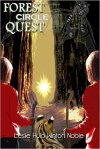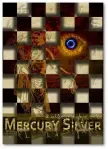A recent discovery I made last year (about eight years late) that has got me completely enthralled, is of the prodigy Alma Deutscher. Have you come across her? Born 2005, and now a concert pianist and violinist and a composer of symphonies, an opera, and a number of other works. She learnt to play the piano at two, the violin at three, and began her fame when discovered by Stephen Fry, a friend of her father’s, when she was seven.
She was soon hailed as a second Mozart, but this makes her slightly indignant. She is, she always insists, the first Alma!
I love her music, and also her philosophy which is, when people ask when her music is going to get ‘serious’ and reflect the ugly side of life, that if she wants ugly she can watch the news, but for beauty she goes to music. This YouTube features her repeating these sentiments. I recall reading that when she was younger and said much the same thing, some commentators got quite savage in what they wrote, and at least one bright spark described her approach as ‘cringe-worthy’. If anyone deserves that appellation, it is surely the idiots who equate art with ‘reflecting the real world’ and as not to be taken seriously unless featuring some blobs of hideousness.
The existence of such utter genius in one so young gives fascinating scope for speculation regarding nurture/nature/evolution/reincarnation and the like. She has a very bright but ‘normal’ younger sister, so that rather questions the heredity or education theories put forward by scientists to explain prodigies. On the other hand, there are other prodigies who have virtually been ‘created’ by the force-feeding of parents or others being added to some exceptional talent, so the true nature of the phenomenon is elusive. I just wish I had grown up with such natural abilities.
However, to me, it is incomprehensible that such sheer knowledge of and instinct for harmonies, and the complex muscle-memory that goes into playing these challenging instruments so well, could be assimilated in so few years. Some of it must be inherent, whether stored in spirit or genes. Actually, the explanation that ‘fits’ best, whether it conflicts with all one’s own personal convictions or not, is reincarnation.

















There is a 1h BBC documentary about Alma on Youtube:
It shows her development and the run-up to the premiere of her opera “Cinderella” in Vienna in December 2016.
At 20m40 a clip starts of her practicing piano at age 6 with her teacher Shaplone. Very funny to watch.
CBS has a 60minutes documentary (behind paywall) where her father recounts a piano teacher telling him that “it is very difficult to teach her, because you always have the sense that she has been there before.”
https://www.cbs.com/shows/60_minutes/video/BnSyXOKm75RyFyKQGLsLmOUpQvGzjbAR/alma-deutscher/
Also funny (in a tragic sense) was Mr. Deutscher contacting a music school when Alma was about 5y and being told off: “maybe come back in ten years.” Oops :-).
LikeLiked by 1 person
What I find amazing is that with her accomplishments and strongly-held views she should come across as conceitedly presumptuous. She doesn’t, to me at any rate.
LikeLiked by 1 person
Indeed, totally adorable. And she behaves like a kid in a world-sized candy store, without eating too much ;-).
LikeLiked by 1 person
Oops, the Shaplone clip referred to starts at 26m40s, not 20m40s.
LikeLike
I entered a comment, but it didn’t show up. When I tried again I got the duplication error. But it’s still not showing. What’s up?
LikeLiked by 1 person
I simply can’t find it. Nor does this link take me anywhere meaningful.
LikeLike
I tried again, but still got the same duplication error. So I’ll put my comment below here, see it that tricks the system into accepting it:
*****************
Interesting reincarnation discussion thread :-). Virginia DOPS has been at this research for just over half a century and has produced voluminous scientific -peer reviewed- data on the subject. By the way, we tend to ignore the Indian government sponsored research because of obvious religious conflicts of interest, but they follow up on all reincarnation recollections that they can find.
The DOPS team have published two massive psychology textbooks which, if you can stomach reading heavy scientific literature, will give you pause for thought on the subject of consciousness. Simply stating that “the brain did it” no longer flies in this day and age. The billiard balls universe went the way of the dodo more than a century ago.
https://med.virginia.edu/perceptual-studies/book/irreducible-mind-toward-a-psychology-for-the-21st-century/
https://med.virginia.edu/perceptual-studies/book/beyond-physicalism-toward-reconciliation-of-science-and-spirituality/
LikeLiked by 1 person
That is certainly a wealth of information and proof to be rejected by mainstream thinking, but ingrained thinking remains just that. Human nature. Thanks for the links.
LikeLike
I have just been reading two books, the first one being a nice intro to the second one, which methinks goes a long way in laying out what we may be dealing with here. Alma fits right into the spectrum of “intuitives” described in it.
But one major difference jumps out: where all the intuitives interviewed admitted to being scared to death early on of their apparent capabilities, Alma has no such baggage. I think this is partly because she offers something many people appreciate highly and don’t care where it comes from and partly because her parents did an absolutely stellar guidance job.
– 1 –
RANDI’S PRIZE
“What sceptics say about the paranormal, why they are wrong and why it matters.”
by
Robert McLuhan
Robert McLuhan studied English Literature at Oxford, then worked as a foreign correspondent for the Guardian in Spain and Portugal. He now works as a freelance journalist. He has been a member of the Society for Psychical Research since 1993, blogging and lecturing on paranormal topics. His 2010 book Randi’s Prize is a critique of sceptical arguments against psychical research. He is currently overseeing the SPR’s new publications projects financed by the Buckmaster Bequest.
Paperback ISBN 978-1-78677-097-4
eBook ISBN 978-1-78677-098-1
Skeptiko interview
“Note: At the time of writing Randi’s Prize, James Randi’s One Million Dollar Paranormal Challenge was still on offer. It was formally terminated in 2015. According to the James Randi Educational Foundation, over a thousand people had applied to be tested, but none was successful.”
– 2 –
EXTRAORDINARY KNOWING
“Science, skepticism, and the inexplicable powers of the human mind.”
by
Elizabeth Lloyd Mayer
Ebook ISBN: 9780553903515
Foreword:
“In December 1991, my daughter’s harp was stolen; we got it back. But it came back in a way that irrevocably changed my familiar world of science and rational thinking. It changed the way I go about living in that world. It changed the way I perceive the world and try to make sense of it. This book is about what unfolded as I attempted to explain what happened.”
10m introduction video:
Obituaries 2005:
1 https://www.berkeley.edu/news/media/releases/2005/01/06_lisby.shtml
2 https://www.sfgate.com/bayarea/article/Elizabeth-L-Mayer-UC-psychologist-2707330.php
——–
LikeLike
Fascinating, indeed.
LikeLike
Reblogged this on Christina Ann Barrett and commented:
I’m quite familiar with this lovely girl but did not realize she has gotten to writing.
LikeLike
Her work shows astonishing maturity.
LikeLike
Yes! She started young. It’s interesting how she does tricks with music rather than just play it like most people. I had a few little tricks, and people made a big deal out of it for some reason. People actually thought I was good at piano.
LikeLike
I’m quite familiar with this lovely girl but did not realize she has gotten to writing.
LikeLiked by 1 person
Fabulous – and fascinating. I like your take on it, too.
LikeLike
Thank you; it is a controversial one in two sectors!
LikeLike
It’s almost unbelievable;.
With all the garbage, that passes as music, these days from the ‘young’,
to suddenly have this bloom amongst us, has to give hope for the future surely.
LikeLiked by 1 person
I fully agree. It is thrilling to see and hear.
LikeLiked by 1 person
Thank you for bringing her to my attention, amazing. I’m often told you’re too young, stop rushing it isn’t a race and when I say I’m not rushing I’m just working at a pace that suits me and actually I feel time is marching on it makes me wonder how true child protégées ever get on. I was fascinated that she is home schooled that is still quite rare for Brits in the UK, I didn’t know we had the resources they have in the States.
LikeLiked by 2 people
On the other hand, the sooner one makes one’s name the better, and I’m sure you won’t regret the pace you set yourself.
Apparently home schooling happens a fair amount in UK, particularly where fostering a prodigy’s talent becomes difficult when trying to fit in with school schedules. I know people who have done it here in South Africa, too, for reasons that some areas have substandard schooling facilities.
LikeLike
Amazing how often this happens with music. On another tack it reminds me of Simon Barnes writing in The Times about Brian Lara’s phenomenal first year, when he suggested that the young genius could now do nothing more.
LikeLike
He certainly saw the error of his ways, to acknowledge time and again that Brian was a genius.
LikeLiked by 1 person
Thank you
LikeLike
Oh to have just a teeny bit of her talent! I love her attitude too.
LikeLiked by 1 person
Her maturity and confidence when talking about music are amazing; yet I love the fact that according to her parents when it comes to childish things she is simply another child. Like squabbles with her sister on who got one treat more than the other.
LikeLiked by 2 people
Now that is nice to hear.
LikeLiked by 1 person
Isn’t reincarnation also a form of diminishing both her talents and accomplished?
What’s wrong with just accepting that the bell curve of human evolution has two equally (to us) inprobable sides?
The incredibly inept (politicians) at one end of the spectrum and her at the other end?
LikeLike
Why would it diminish them? It simply provides a far more credible time frame in which they could have been acquired. With politicians at the beginning of the journey. Evolution doesn’t fit, here, or Helen Deutscher would have similar accomplishments?
LikeLike
Read your words . . . “more credible timeframe” . . . you’re basically saying it can’t be her, her current abilities are not possible unless she’s channelling a prior life. Listen to her words, who she is. Tell me that saying she must be a reincarnation of someone else would not be taken as an insult and a knock on what she considers her abilities and accomplishments.
As for Helen, you’re either purpousefully misinterpreting evolution or you don’t realize evolution does not create carbon copies. There are plenty of examples with siblings (even twins) with vastly different abilities and accomplishments Plus . . . The bell curve has extremes, I’ll repeat, and just because we cannot conceive of such extremes, it doesn’t mean they don’t exist.
But for the sake of argument . . . Newton in the span of a few months came up with calculus and a theory for light diffraction as it applies to optics and a theory for how gravity dictates the motions of the planets and stars, and a few other things.
Even if he was the reincarnation if someone long ago, calculus had not existed before then. Neither has a theory for how gravity worked. Being the reincarnation of someone “before” would not have helped him one bit.
You’re incredulous of the abilities of this girl’s because you can’t conceive of anyone being that talented. The thing is, that’s your limitation not hers.
You can see similar extremes (and sometimes, greater) not only in science and the arts but in sports and pretty much any human endeavor.
Also, as an aside, autistic savants are capable of (what seems to us as) amazing mental feats. But, it’s only amazing to us because our brains are not capable of processing information the way theirs do. Per force, it seems to us incredible. For them, it’s normal. No reincarnation required. The funny thing is that even when they explain how they do it, the average human brain is not wired like theirs so we’re physically incapable of developing similar processing abilities.
See, I did all that without attacking the very flawed concept of reincarnation.
LikeLike
You demonstrate that you know little about the concept of reincarnation. For starters, it isn’t a question of a person reincarnating as someone else; it is the same persona moving to a different life, but in many cases retaining prior memories, skills or talents.
I am not fully convinced regarding reincarnation, although the more I read regarding the scientifically gathered proof the more I am inclined to be so. Leave that aside for a moment. Can a body instantly become an adult one, without the growth cycles involved? Never. Can an infant brain be instantly wired to have knowledge and skills that it normally takes into adulthood to develop even for the exceptionally talented? Unlikely.
Remember, this is not only the brain; it is sheer muscle memory that allows the reproduction of the intricate movements involved in playing difficult instruments.
If you study the scientific explanations regarding nature and nurture they fall hopelessly short. Only some sort of precondition can account for the phenomenon. Whether this is due to reincarnation or due to a complex genetic code, who can say. However, to bleat, ‘They are like that because they are like that,’ is feeble in the extreme. Something is there to create that potential.
As to the concept of reincarnation, where do you see the flaws?
LikeLiked by 1 person
What’s the difference between a person being reincarnated and not retaining prior memories and a person not being reincarnated?
In your opinion, what exactly is being reincarnated? Are motor skills a transmittable thing on their own and independent from other “stuff” being reincarnated?
As far as not being familiar with the concept, the problem is that there are too many concepts and people cherry pick from different (mostly religious) ideas to suit their personal preference.
Pick one of these:
https://en.m.wikipedia.org/wiki/Reincarnation
. . . and we can talk discuss it. Or, feel free to explain the “rules” for your particular belief in reincarnation and we can discuss it.
By the way, there are such things as scientific studies and there are things people call scientific studies but that aren’t.
Same for evidence. You and I likely have different ideas as to what constitutes evidence. For instance, I can tell you right now there is no scientific evidence for reincarnation because there is no science that explains it.
So, I suggest limiting the discussion to what I asked; what do you think happens? What gets reincarnated? Why, in your opinion, is reincarnation the only possible (and most reasonable) solution?
Further, why does something outside the norm immediately suggests some metaphysical effect when other explanations may be available?
LikeLike
To start at the end: no more reasonable explanations suggest themselves. This sort of expertise cannot be acquired in such a short period. Therefore there has to be something pre-existing. Genetic? Possible, but . . .
Also by the way, there are accepted scientific studies that do not really pass the acid test, notably in fields of evolution.
The essence of reincarnation ideas is that there is in all life forms a life force or spirit or soul — call it what you will — separate and distinct from the body and brain. This is capable of retaining information for re-use in another vehicle. To what end? Well, let’s not go into all the karma and perfection and becoming nothing or pure spirit speculation. Let us simply consider that as a theory.
All the gen on WIki establishes that the concept of reincarnation has been around for longer than any established religion. This, I submit, is because if one wants to assign any meaning or purpose to life, or regard it as developmental, this is the most reasonable of the explanations. It leaves conventional religion dead on the starting line by comparison, does it not?
So, we have a theory. How do you prove it? It is scarcely feasible to start doing it artificially — actually, someone performing Frankenstein Monster-type experimenting would make a fascinating fantasy story — so you gather anecdotal evidence throughout the centuries and see how much adds up to anything verifiable. Surprisingly much, but it still doesn’t amount to anything completely conclusive.
The next thing would be to follow up on those who profess to have memories of previous lives and to see how much verifiable information emerges that couldn’t be faked or explained away. The three fields of study are recording the memories of young children who still maintain they have them, or of obtaining memories of others under deep hypnosis, or of consulting several mediums under conditions designed to reduce the possibility of conscious or subconscious faking as far as possible.
Here is where Stevenson and those who follow come into it. Between them, they have accumulated quite an impressive list of recordings and verifiable documentation, sufficient of which are compelling enough to make the fanatical attacks of determined detractors seem distinctly ineffectual.
Take Martini, for example. Several of those cases took an enormous amount of research to reveal, at the end, that the information given was quite correct. There is no way it was known, consciously or subconsciously, by any party to the experiment. Other explanations for this, like some universal well of information one can tap into, really seem to be grasping frantically for different answers.
Finally, I have personal experiences of children who have recounted surprisingly sophisticated ‘memories’ (unverified) and my own conviction as a child that I used to be far more talented in music than I found myself, and that I now had some form of ‘block’.
LikeLike
Herein lies the problem and why I’ll not push too much . . . “no more reasonable explanations suggest themselves.”
You begin with the same assumption religious folks make: what I believe is correct and the only possibility.
Lots of reasonable explanations exist but if one begins with a conclusion, it leave no path to discover; only confirmation.
Stevenson presented the 20 best cases and they have been critically examined a number of them found lacking both in consistency, story telling, and “facts” precisely because Stevenson started with the premise of validity and only sought to confirm his own beliefs.
Also, every instance presented deals with memories and emotions . . . Not one case (that I know of) deals with physical abilities, so right there you’re making a leap.
Second, in every studied case, the child is aware and retains the supposed memories. Not so with the prodigy you question as genuine; the opposite, in fact. She claims she is her own person and had never made claims (that I’m aware of) of a past life.
So not only this isn’t a second or third person account if these supposed memories from past lives (as was the case with all of Stevenson’s “studies” which by the way also involved translators, sometimes multiple translators) it is a connection made by someone infinitely removed from the person.
One other interesting thing is that – as one critic points out – there’s no barking dogs.
What he meant is that all of Stevenson’s cases -all of them- are from cultures and countries steeped in the belief of reincarnation.
No examples -zero- from countries with cultures lacking the predisposition for belief.
Just so you know, there is a fair amount of stuff on Stevenson and his studies and beliefs.
But, you’re right . . . Perhaps I’ve missed some conclusive evidence (Stevenson himself admitted he had failed in that regard) but more important, point me to a claim of reincarnation based solely on motor functions without an accompanying memory component.
Also, shouldn’t modern music students and experts be able to pinpoint the origin of her supposed reincarnated being? Don’t composers have signatures much like writers to where we can analyze structure and composition and flow of their work and identify the source?
Even classical music fans can usually identify music from different composers and also note the influence they have on each other.
Who’s the reincarnated master she’s hosting (obviously not just a regular musician since she’s extraordinary) or, at l least, which period did it come from?
LikeLike
If you read what I have written, there is no way that it can be claimed that I have locked into reincarnation as the only explanation. However, if you think the most reasonable one is that she is ‘just wired that way’, then I can’t see it as being such. I have yet to hear of a person ‘wired’ to grow to full physical maturity within a few years, so how can this apply to intricate mental and physical abilities? What other explanations do you find more feasible?
Why should a reincarnated individual be a carbon copy of the original? Having said which, Alma does echo many of the aspects coming into the mature music of master classical composers. Mozart is constantly mentioned.
Is a motor function without the impetus of a memory function possible? I wouldn’t imagine so.
If you look at research since Stevenson, involving plenty of cases where reincarnation is not part of the culture, a thing that would appear to be firmly established is that there is mental access to verifiable (with a lot of effort) information known by dead people. Whether this access comes from ‘spirit’ or elaborate DNA programming is uncertain. So, information access is proven; source as reincarnation is not other than as repeated hearsay from subjects. Just as with evolution, modification is proven while evolving to different species is not, and yet that leap of faith is universally adopted.
I am by nature a doubter and balance-seeker, so this tentative conclusion of mine has not been taken lightly.
LikeLike
I accept that was a typo.
LikeLike
What an amazing talent!
LikeLike
Not to mention her personality!
LikeLiked by 1 person
Any composer who rejects the notion that modern music must necessarily be disturbing, discordant, transgressive, vulgar, and ugly is going to get savaged by the critics. I’m glad Alma Deutscher is smart enough not to care what those who disdain beautiful music have to say about her.
LikeLiked by 1 person
Indeed. These critics are probably driven by sheer jealousy. They know that they can churn out rubbish and pretend it is art, buy they themselves are incapable of producing genuine beauty.
LikeLiked by 1 person